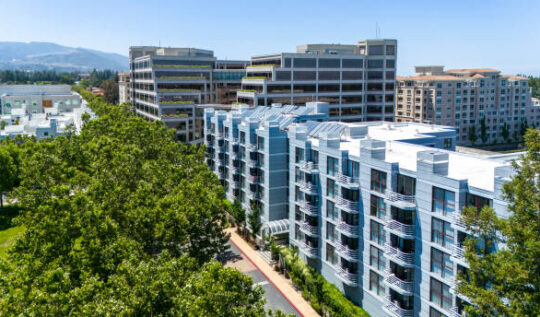Is the LA Real Estate Market Slowing in 2025?
Brokers in Los Angeles. How is your market thus far a quarter into 2025?
That’s the question making its rounds lately—and it’s a fair one. From LoopNet to on-the-ground transactions, the LA commercial real estate market feels like it’s in a strange state of suspended animation. With Q1 2025 wrapped and Q2 dragging its heels, many agents, investors, and landlords are asking the same thing: Are we in a temporary stall or a new normal?
Table of Contents
ToggleHere’s my full take.
🎯 What’s Your Move in LA Real Estate?
The Market Feels Cold—But Not Dead
Let’s address the elephant in the room: Yes, deal volume is down. Properties are lingering longer, and motivated buyers are thin. Brokers specializing in office and retail are reporting reduced activity, particularly when it comes to larger deals.
A big reason? Uncertainty. With the recent tariff announcements affecting imported building materials and equipment, a lot of investors and developers are taking a wait-and-see approach. Costs are unpredictable, and future asset performance is harder to model. Add in sticky interest rates and economic tension overseas, and it’s no wonder capital has paused.
Office and Retail: Challenging, but Not Dead
If you’re dealing with office space, it’s tough right now. Across Los Angeles—from Culver City to Downtown—office tenants are downsizing, consolidating, or seeking more flexible leases. Hybrid work models aren’t going anywhere. It’s not that there are no deals; it’s that every deal requires heavy negotiation and creativity.
Retail brokers are seeing tight inventory in strong-performing locations (think Melrose or parts of Santa Monica), but tenant appetite is conservative. New brands are hesitant, and national chains are holding back expansion.
That said, medical offices are outperforming. Clinics, dental offices, and wellness facilities are still growing and leasing. If you’re in that niche, you’re probably busy.
Multifamily is Split by Zip Code
I specialize in small to mid-size multifamily investment properties, and I can tell you—location is everything right now.
In wealthier neighborhoods (Hollywood, Venice, DTLA fringe), well-maintained 4–6 unit properties are still selling north of $400K/unit, particularly if they’re stabilized or lightly value-add. These aren’t fire sales. Owners aren’t desperate—but buyers aren’t throwing around cash either. It’s all about the math.
In more affordable zip codes—Wilmington, Hawthorne, Crenshaw, Gardena—you’ll see trades at $100K–$150K/unit, often needing significant work. Buyers are targeting value-add opportunities and demanding cap rates that justify risk.
The key here? Most of these properties never hit LoopNet. Off-market deals and private networks dominate the activity. If you’re only searching online, you’re missing where things are happening.
Tariffs: Real Impact on Seller Expectations
The recent tariffs on steel, aluminum, and HVAC imports are already nudging construction and rehab costs higher. That affects both developers and flippers, who now need more margin to make projects pencil.
As a result, buyers are more conservative, and sellers are finally adjusting—though reluctantly. The days of 2022 pricing expectations are fading, especially in Class B and C product. Some owners are choosing to hold, refinance, or lease at reduced terms instead of selling at a “loss.”
Are sellers “willing to accept less”? Not always—but motivated ones are learning they must. Especially when cap rates are creeping up and buyers want contingencies or credits.
Capital Has Gone Cautious—Not Disappeared
A number of brokers and investors have noticed that investment capital has largely gone quiet, particularly in the past 30 to 60 days. Syndicates, funds, and even individual cash buyers are pressing pause, citing:
Global economic uncertainty
Tariff fallout
Inflation pressure
Tax policy unknowns
But let’s be clear: the capital is still there—it’s just more selective. Underwriting is tighter. Margins must be clearer. Risk premiums are real. If your deal doesn’t check every box, it doesn’t move.
LA Real Estate Market 2025: What You Need to Know
Market Overview
The LA commercial real estate market feels like it's in a state of suspended animation early 2025. Deal volume is down, properties linger longer, and buyers are cautious due to:
- Uncertainty from new tariffs on building materials
- Sticky interest rates
- Global economic tensions
Asset Class Insights
- Office & Retail: Challenging market, heavy negotiations, downsizing, but not dead.
- Medical Offices: Outperforming; growing leasing activity.
- Multifamily: Split by zip code — high-end areas steady; affordable areas value-add focused.
Impact of Tariffs
- Steel, aluminum, HVAC import tariffs increase construction/rehab costs
- Buyers more conservative; sellers adjusting prices reluctantly
- Class B & C properties face biggest pricing pressure
Capital & Investment Sentiment
Investment capital has paused but not disappeared. Buyers are more selective, with:
- Tighter underwriting standards
- Higher risk premiums
- Preference for deals that check all boxes
Key sectors still moving: medical/wellness leases, small multifamily, value-add opportunities, and 1031 exchange deals.
Advice for Market Participants
- Reposition your strategy to reflect current market selectivity
- Work with brokers specializing in your asset class and local submarkets
- Leverage off-market and private network deals beyond LoopNet
- Be patient and flexible—key traits for success in 2025
So What’s Moving Right Now
From my desk at JDJ Consulting Group, here’s what we’re seeing that is still working:
Medical and wellness leases in up-and-coming neighborhoods
Multifamily under 10 units in LA submarkets with healthy rental demand
Value-add assets with clear upside, even in lower-income areas
1031 Exchange buyers trying to place funds before deadlines
You need to know your niche. You need to know your buyer. And most importantly, you need realistic expectations.
Final Takeaway: LA’s Market Isn’t Frozen—It’s Selective
This market favors those with strong local knowledge, niche asset class specialization, and off-market access. It also rewards patience and flexibility—traits not every seller or buyer brings to the table.
If you’re a broker, investor, or owner in LA and wondering where to go next, my advice is simple:
Reposition your strategy
Talk to brokers who actually specialize in your asset class
Stop relying solely on LoopNet
And if you’re looking to navigate the market with insight—not just listings—talk to us at JDJ Consulting Group. We help buyers, sellers, and landlords make the next right move. Call us at (818) 233-0750 or contact us online to get started today with the best real estate consultants.






Will Home Prices Go Up in West LA? | 2025 Housing Trends
August 1, 2025
[…] real estate market in West Los Angeles has always been dynamic, but recent environmental disasters—particularly wildfires—are […]